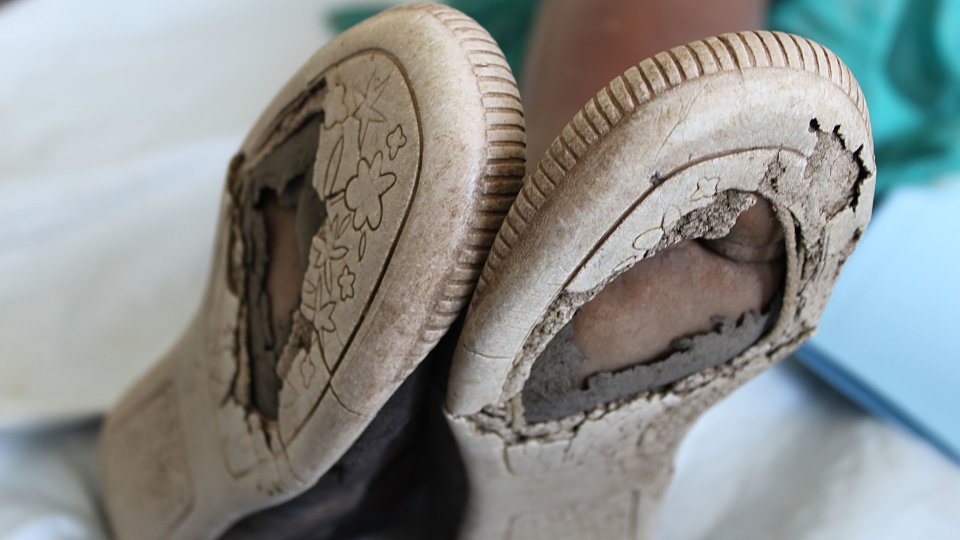Why are shoe drives so important?
Hosting a shoe drive is a fun, meaningful way to serve those in need. Individual personalities shine through as donors make sure the shoes are special – they carefully select the perfect pair in the best color, with the coolest character, and add the personal touch of an attached note.
Why shoes?
Shoes are one of the hardest goods to find in developing countries. Basic necessities such as food and clothing can be attained through indigenous sources: food can be grown, clothes can be made, wells can be dug for water. But shoes cannot be grown or easily made, so they’re imported, making them more expensive.
“Donating shoes for vulnerable children fulfills such a basic need that is hard for them to meet in any other capacity,” said Rachel Wallis, director of Buckner Shoes for Orphan Souls®.
In developing countries, vulnerable children can become sick when their feet are unprotected. Parasites and diseases can be caught when walking around without shoes. Out of desperation, people may even try to cover their feet using parts of old water bottles or rope, but these makeshift shoes do not offer the necessary protection.
When new shoes are given to children in need through Shoes for Orphan Souls, it also opens the door for holistic ministry at Buckner Family Hope Centers across the globe. Families often learn about the opportunities available at their neighborhood Family Hope Center because their child received shoes at a local shoe distribution.
Additionally, children in most countries are required not only to wear shoes to school, but to wear a specific type of shoe. This is one of the most challenging barriers for vulnerable families in developing countries to overcome. Giving a child in need a new pair of shoes allows them to go to school for another year.
Why shoe drives?
Shoe drives create teachable moments for families. Shoe drives give parents an opportunity to discuss poverty in a way that’s relatable for their children. Children understand the idea that some children don’t have shoes, and they see why it’s important to take action to help. They can pick out a pair of shoes for a child their age and it becomes a very personal experience. The shoes and the encouraging, handwritten notes delivered with the shoes are a small way to show orphans and vulnerable children that God loves them.
Shoe drives are a great way to build community. Shoe drives can include so much more than just dropping off shoes into a box. After collecting new shoes, many groups hold a packing day where they write encouraging notes to the children, attach them to the shoes and then pack and ship the shoes to Buckner. If the shoe drive is in the Dallas/Fort Worth area, the participants can spend a day at the Buckner Center for Humanitarian Aid volunteering and preparing shoes for delivery. If the group wants to go further, they can participate on a Shoes for Orphan Souls mission trip, hand delivering shoes to vulnerable children.
Shoe drives are fun. Shoe drives allow participants to take action and engage others in creative ways, and they provide an active way to give to the community and those in need.
Buckner needs you to host shoe drives. Throughout the year, we get many requests for shoes, whether from our Family Hope Center locations around the world and in the United States, or from other groups. Every year we give about 275,000 pairs of shoes to children in need, so we are constantly in need of new shoe donations. And while Shoes for Orphan Souls appreciates all new shoe donations, our greatest need is for athletic shoes sizes youth 1 to adult 12.
Considering hosting a shoe drive?
When you host a shoe drive, Buckner will provide all the resources and materials needed for a successful drive. Your project coordinator will walk you through the process and encourage you during the drive. Learn more or sign up here.
Remember – the shoes you collect will lead to something much greater than covering a child’s bare feet. They provide health, education, opportunity and hope to vulnerable children around the world.
Written by Kayln Grider, a summer intern with Buckner Communications.




Add a Comment